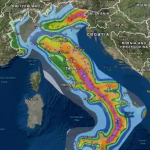The news of the tragic earthquake in Italy in the town of Amatrice has affected us all. Two partners at Intelligent Management were directly involved in a major earthquake in their hometown of Salerno in Italy in 1980 that changed the lives of many. Our hearts and prayers go out to those who have lost loved ones, homes and who have suffered trauma. As systemic thinkers, we must comment on these events because if we do not learn from them, we put more lives at risk.
No plan
Italy is a highly seismic area and earthquakes are inevitable. Italy is populated in dense clusters. In spite of these facts, Italy has never put in place a master seismic prevention plan. This is the sad truth.
60% of of buildings in Italy were constructed before 1971 and 2.1 million of these are in “bad or mediocre” condition. Since the 1960s the Italian government has spent 150 billion Euros to reconstruct after earthquakes but has set aside less that 1 billion Euros for prevention, and it only did that after the tragic devastation of the earthquake in L’Aquila in 2009. Amazingly, still today Italian building regulations are not strict when it comes to anti-seismic technology and, in many cases, regulations are simply neglected.
There are around 5 million buildings in areas of high seismic risk in Italy and at least 70 per cent of them need anti-seismic intervention. However, there are very few funds set aside for this. See article in Italian: http://www.repubblica.it/cronaca/2016/08/25/news/il_60_dei_vecchi_edifici_a_rischio_e_l_italia_se_ne_dimentica-146608535/?ref=HREC1-9)
Not just an Italian problem
The deaths of foreign nationals in Italian earthquakes who were tourists are the most obvious testimony that this is not just an Italian problem. Indeed, courageous helpers have come from various other countries to help in the wake of this disaster, such as the Spaniards with specially trained search dogs. Human courage and empathy does not recognize geographical boundaries.
Italy is part of the European Union. The Union has both the possibility and the duty to offer support but also to impose the kind of regulations on member states to protect human life and install that minimum sense of responsibility that requires forward thinking and investment beyond the short-term ambitions of politicians.
Systemic thinking for survival
Climate change will continue to increase the number of “natural” disasters occurring all over the world. Being able to think systemically in terms of the implications and consequences of political decisions is imperative, not just to flourish in an increasingly complex reality but, in many cases, for the prevention of unnecessary casualties. The tools to engender systemic thinking and action exist. As Dr. Deming so succinctly put it, “Learning is not compulsory, but neither is survival.”
Sign up to our blog here and shift your thinking towards broader, systemic possibilities for yourself and your organization.
About the Author
Angela Montgomery Ph.D. is Partner and Co-founder of Intelligent Management, founded by Dr. Domenico Lepore. She is co-author with Dr. Domenico Lepore and Dr. Giovanni Siepe of ‘Quality, Involvement, Flow: The Systemic Organization’ from CRC Press, New York. Angela’s new business novel+ website The Human Constraint looks at how Deming and theTheory of Constraints can create the organization of the future, based on collaboration, network and social innovation.






Leave a Reply